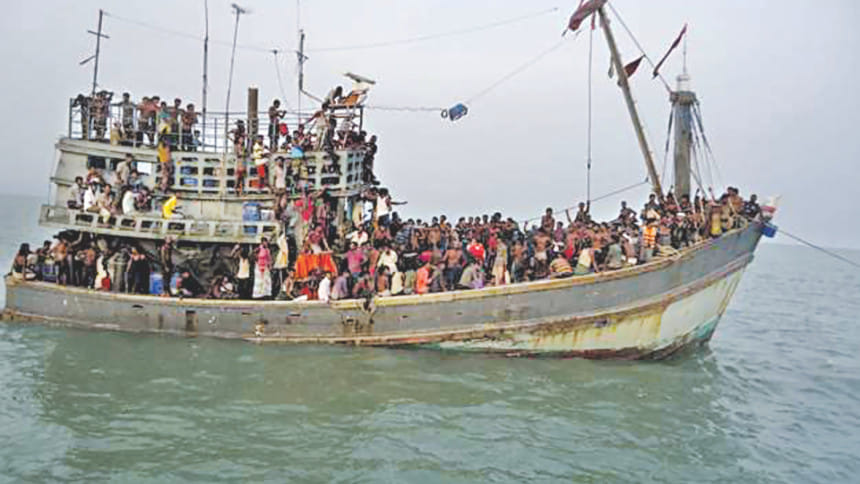Opinion: Human trafficking and Myanmar denial

The continuous media exposure of the humanitarian crisis caused by thousands of illegally trafficked men, women and children, has led to an international demand to give these desperate and physically sick people – humanitarian aid first and then options for them to find homes somewhere in this planet. Gambia has offered to take in the Rohingya refugees and some entrepreneurs of Malaysia have said they will give them jobs. The Philippines has already taken in many of the victims, providing them with shelter and treatment. The attitude of Thailand, where mass graves of thousands of boat people are still being unraveled, is somewhat positive – at least it is offering to hold a summit for the concerned countries to come up with a solution. Under international pressure, Malaysia and Indonesia have finally started to accept the refugees into their borders and offer humanitarian aid.
But what is most disappointing is the continuous denial of the Myanmar government of the fact that the Rohingya people are their citizens and it is their responsibility to rehabilitate them. The refusal of Myanmar to attend the summit if the term 'Rohingya' is used and referring to the more than 3000 Rohingyas rescued by its navy as 'Bengali boat people' shows just how staunchly they will stick to their prejudiced stance. Added to that is the virtual silence of Nobel laureate Aung Sung Suu Ky, the iconic figure of democracy and human rights, regarding the granting of Myanmarese citizenship of Rohingyas. Although a feeble attempt was made by a spokesperson of her party in this regard, the fact that she herself has chosen not to publicly defend these hapless people who have just as much right to live in their own country as she does, is disheartening. Bangladesh has continuously been pressured by the west to take in Rohingya refugees fleeing unbelievable persecution in their homeland Myanmar and it has complied for many decades. It is about time that nations of the west put pressure on Myanmar stop the ethnic cleansing and own up to its responsibility of taking back the Rohingya people, giving them full citizenship. This will be a significant step in ending this humanitarian crisis.

 For all latest news, follow The Daily Star's Google News channel.
For all latest news, follow The Daily Star's Google News channel. 



Comments